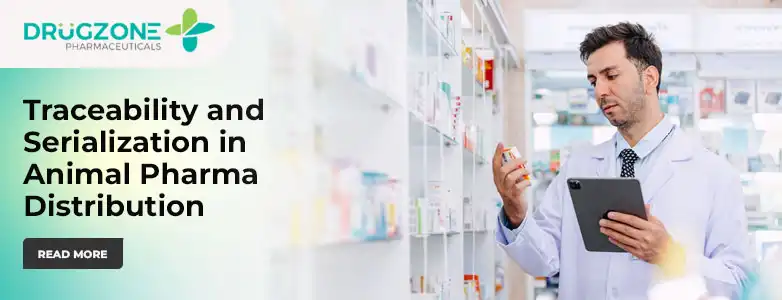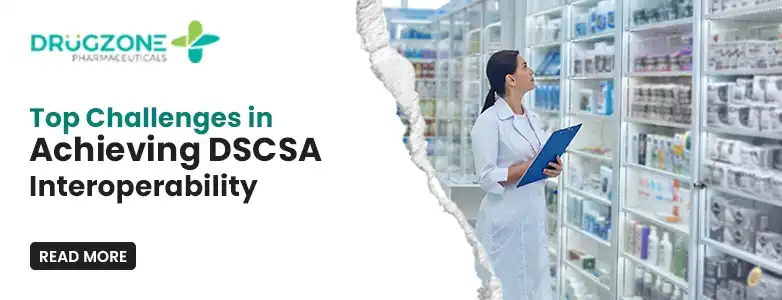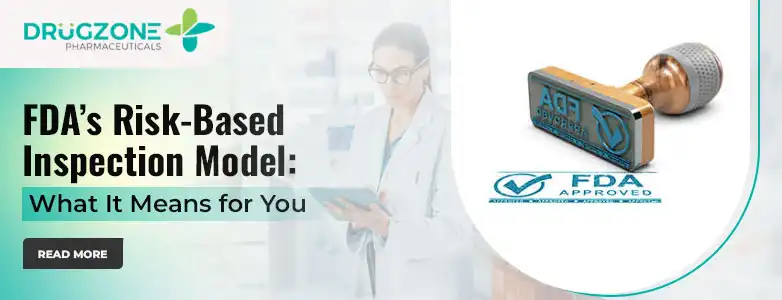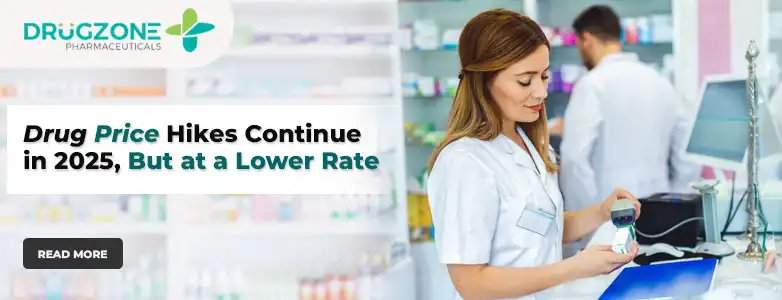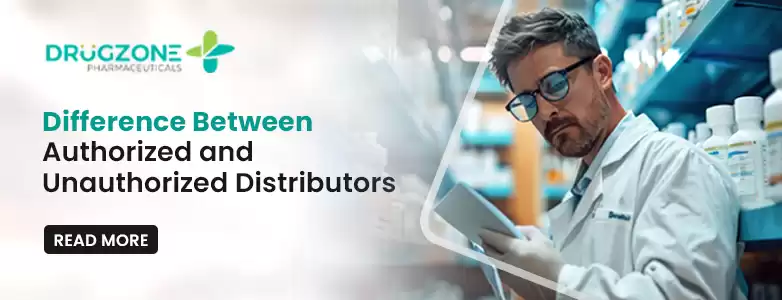
Posted On: September 26, 2024
Understanding the Difference Between Authorized and Unauthorized Pharmacy Distributors
The pharmaceutical supply chain is complex, and navigating its various aspects can be challenging. However, not all challenges are inherently complex. Sometimes, it can be as straightforward as sporting the authorized pharmacy distributors while striking out the unauthorized ones.
You are likely concerned about issues like regulatory compliance, quality assurance, and the traceability of medications.
Whether you're a pharmacy owner, healthcare provider, or involved in supply chain management, understanding these differences can save you from the disasters that come with working with less-than-reputable distributors.
Comparing Authorized vs. Unauthorized Pharmacy Distributors
Here's a one-on-one comparison of authorized unauthorized pharmacy distributors.
1. Regulatory Compliance
Authorized distributors operate strictly within the guidelines set forth by regulatory bodies such as the FDA. Compliance ensures that all legal requirements for handling, storing, and distributing prescription drugs are met.
In contrast, unauthorized distributors often operate outside regulatory oversight. This leads to their failure in meeting legal standards for handling and distributing medications, thus posing significant risks to the supply chain and patient safety.
2. Quality Assurance
Authorized distributors adhere to stringent quality control measures, including proper storage conditions and robust tracking systems, to maintain the medication's integrity.
However, unauthorized providers mostly lack stringent quality control. This increases the chances of compromised medications entering the market, such as those that are improperly stored, counterfeit, or expired.
3. Traceability
Authorized distributors implement standardized tracking systems as mandated by the Drug Supply Chain Security Act (DSCSA), ensuring complete traceability of drugs from manufacturing to the point of sale.
Unauthorized pharmacy distributors typically lack robust tracking and tracing mechanisms, which makes it tricky to verify the authenticity and origins of the medications they distribute.
4. Reputation and Trust
Authorized distributors are recognized for maintaining high standards and holding a trustworthy reputation within the industry.
Pharmacies and healthcare providers prefer engaging with authorized distributors for reliable medication supplies. Engaging with unauthorized sources can lead to damaged reputations for pharmacies and healthcare providers.
Patients receiving substandard or counterfeit medications can lead to mistrust and even legal repercussions.
5. Risk to Patient Safety
Authorized pharmacy distributors ensure patient safety by providing high-quality, safe, and effective medications through regulated and monitored channels.
Unauthorized distributors, however, pose significant risks to patient safety, as their lack of regulation and quality control can result in the distribution of unsafe or ineffective medications.
6. Supply Chain Integrity
Authorized distributors contribute to a secure and transparent supply chain, where every transaction is recorded and verifiable.
But the unauthorized ones can disrupt the supply chain, making it more prone to fraud, theft, and diversion.
7. Legal and Financial Risks
Authorized distributors adhere to regulations, and thus minimize the risk of legal penalties and financial loss.
Whereas, unauthorized distributors can instead expose you to significant legal and financial risks due to non-compliance with laws, which can result in hefty fines and lawsuits.
8. Customer Support and Service
Authorized distributors offer extensive customer support and services, including consultation, training, and problem resolution. This aids in ensuring a smoother operational workflow for clients.
Unauthorized distributors usually lack dedicated customer support and may be unreliable when issues arise, leaving you without the necessary assistance.
9. Ethical Standards
Authorized distributors generally adhere to high ethical standards while aligning with the best practices and moral obligations of pharmaceutical supply.
Conversely, unauthorized distributors may prioritize profit over ethics, and lead to unethical practices such as the distribution of counterfeit or unsafe drugs.
10. Availability and Consistency
Authorized distributors have established networks and supply chains, which ensures a consistent and reliable supply of medications.
However, unauthorized distributors can be inconsistent and unreliable, leading to potential shortages and delays in getting necessary medications.
What Makes Drugzone Your Trusted Pharmaceutical Partner
Drugzone has established itself as an authorized pharmacy distributor by adhering to stringent regulatory standards and maintaining rigorous quality control measures.
Licensed by relevant health authorities, including being FDA and DSCSA-compliant, we ensure that all medications in the inventory are sourced directly from reputable manufacturers and subjected to comprehensive verification processes.
As an NABP-accredited partner, we adhere to the highest standards of compliance, further highlighting our commitment to excellence.
FAQs
Q. Why is it important to choose an authorized pharmacy distributor?
Choosing an authorized pharmacy distributor ensures compliance with regulatory standards, quality assurance, and traceability of medications.
This helps guarantee that you receive safe, effective, and high-quality medications, thereby protecting patient safety and maintaining the integrity of the pharmaceutical supply chain.
Q. What happens if I use an unauthorized distributor?
Unauthorized distributors often operate outside regulatory oversight and lack stringent quality control measures. This increases the risk of receiving compromised, counterfeit, or expired medications, which can jeopardize patient safety and lead to legal and financial repercussions for pharmacies and healthcare providers.
Q. How can I tell if a pharmaceutical distributor is authorized?
Check their certifications and see if they are approved by regulatory bodies like the FDA. Authorized distributors will also provide proper documentation and tracking information.

